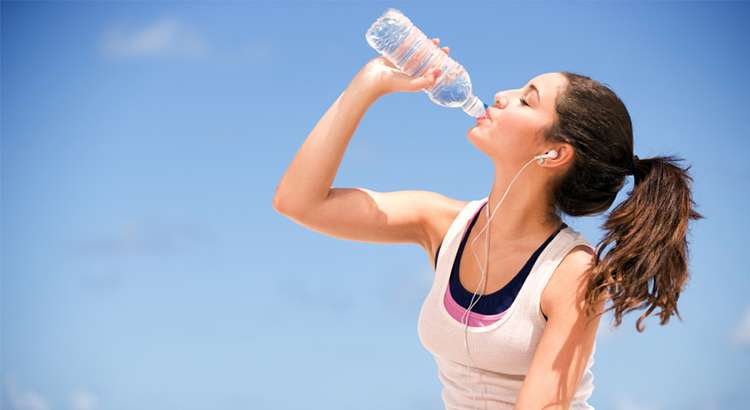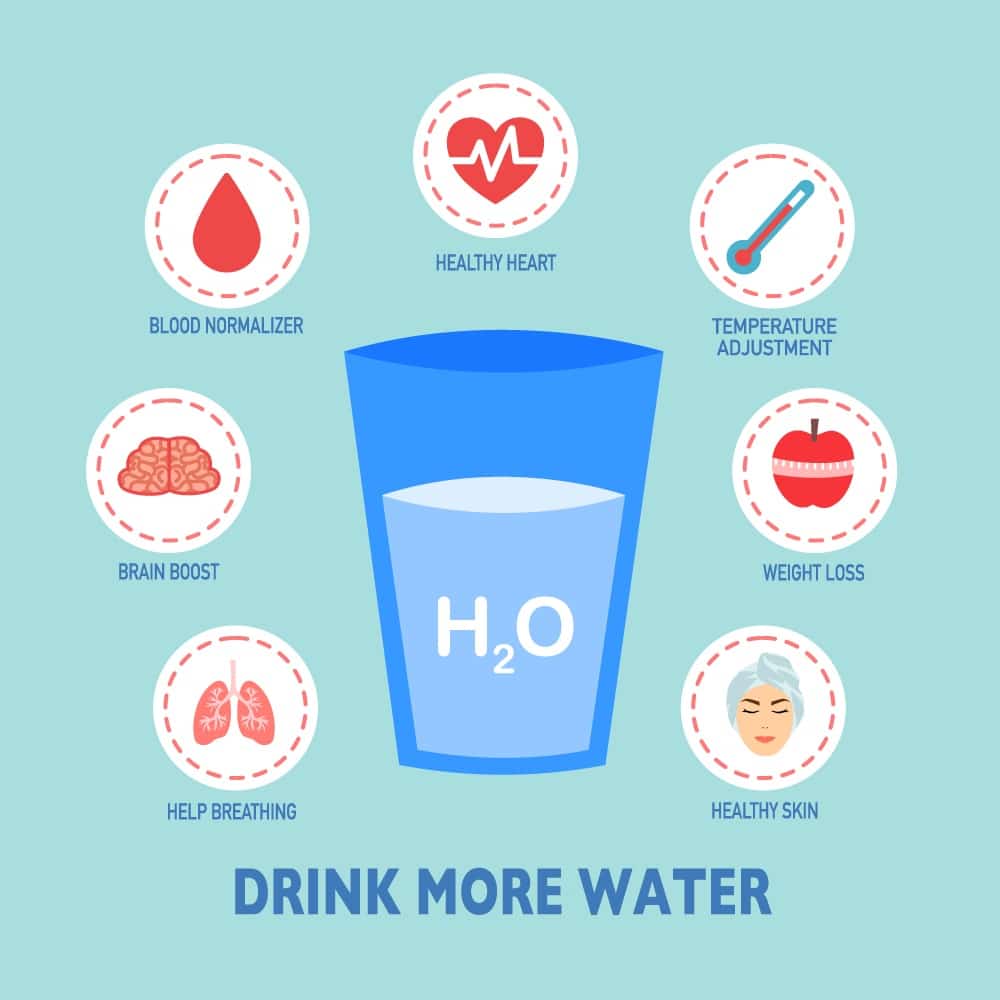
Water, a fundamental element for life, offers a multitude of benefits for the human body. Its significance lies in lubricating joints, transporting oxygen, safeguarding kidneys, and supporting various bodily functions.
Dive into the Importance of Hydration
1. Joint Lubrication
The joints, containing cartilage comprising about 80 percent water, rely on adequate hydration for optimal shock absorption. Prolonged dehydration can lead to diminished joint functionality and discomfort.
2. Saliva and Mucus Formation
Water contributes to saliva production, aiding digestion, and maintains moisture in the mouth, nose, and eyes, preventing friction and damage. Opting for water over sugary beverages also promotes oral hygiene, reducing the risk of tooth decay.
3. Oxygen Delivery
With over 90 percent water content, blood efficiently carries oxygen to different parts of the body, ensuring proper organ and cell function.
4. Enhancing Skin Health
Adequate water intake preserves skin health, preventing disorders and premature wrinkling caused by dehydration.
5. Protection for Sensitive Tissues
Water acts as a cushion for the brain, spinal cord, and sensitive tissues, playing a role in hormone and neurotransmitter production. Prolonged dehydration can impact cognitive functions.
6. Regulation of Body Temperature
Water regulates body temperature through sweat, cooling the body when it evaporates. Insufficient water may hinder the body’s ability to tolerate heat strain.

Beyond Hydration: System-Specific Benefits
7. Digestive System Support
Proper bowel function relies on adequate water intake. Dehydration can lead to digestive issues, constipation, and an overly acidic stomach, increasing the risk of heartburn and stomach ulcers.
8. Waste Removal
Water is essential for processes like sweating and the removal of urine and feces, helping the body eliminate waste efficiently.
9. Blood Pressure Maintenance
Insufficient water can thicken the blood, elevating blood pressure. Maintaining adequate hydration levels supports optimal blood pressure.
10. Respiratory System Health
Dehydration restricts airways, worsening conditions like asthma and allergies. Sufficient water intake is crucial for maintaining healthy airways.
11. Accessibility of Minerals and Nutrients
Dissolving in water allows minerals and nutrients to reach various parts of the body, supporting overall health.
12. Kidney Protection
Water aids in dissolving minerals and nutrients, preventing kidney stones and other potential issues. Chronic dehydration can lead to kidney damage.
13. Performance Boost during Exercise
Increased water consumption may enhance performance during physical activity, reducing the impact of dehydration on activities lasting longer than 30 minutes.
14. Weight Loss Support
Choosing water over sugary beverages may aid in weight loss. “Preloading” with water before meals can create a sense of fullness, preventing overeating.
15. Hangover Prevention
Alternating unsweetened soda water with alcoholic drinks can help prevent overconsumption of alcohol, reducing the likelihood of a hangover.

Safeguarding Kidney Health
Water plays a crucial role in kidney function, facilitating the removal of waste products and preventing complications like kidney stones.
Addressing Urinary Tract Infections (UTIs)
Adequate water consumption reduces the risk of UTIs and aids in their treatment. Chronic dehydration can lead to severe kidney infections, emphasizing the importance of hydration.
Combatting Kidney Stones
Insufficient water intake is a primary cause of kidney stones. Increasing fluid intake significantly decreases the risk of stone recurrence, as per guidelines issued by the American College of Physicians.
Dehydration and Kidney Failure
Severe dehydration can lead to kidney failure, resulting in life-threatening complications. Chronic kidney failure may lead to anemia, central nervous system damage, heart failure, and a compromised immune system.
Optimal Water Intake: A Holistic Approach
Water can be obtained through various sources, including foods with high water content, soups, tomatoes, and oranges. However, drinking water remains the best source of hydration.
Recommended Daily Water Intake
The daily water requirement varies based on individual factors such as activity level and sweating. According to the U.S. National Academies of Sciences, Engineering, and Medicine:
- Men should aim for around 3.7 liters or 125 ounces of total fluid intake.
- Women should aim for around 2.7 liters or 91 ounces of total fluid intake.
Approximately 80 percent of this intake should come from beverages, including water, with the remainder from food.
Stay Hydrated: Key Moments
Ensuring sufficient water intake is especially crucial:
- During fever
- In hot weather
- In cases of diarrhea and vomiting
- During intense physical activity
Interesting Water Facts
- Babies and children have a higher percentage of water than adults.
- Fatty tissue contains less water than lean tissue.
- Men generally have a higher percentage of water than women.
Are We Drinking Enough Water?
A study by the Centers for Disease Control and Prevention highlighted the following findings:
- 7 percent of adults reported no daily water consumption.
- 36 percent consumed 1-3 cups of water daily.
- 35 percent consumed 4-7 cups of water daily.
- 22 percent consumed 8 cups or more daily.
Notably, low water intake was linked to minimal fruit and vegetable consumption, indicating potential health risks. Adequate water consumption is essential for overall well-being and should not be overlooked.


